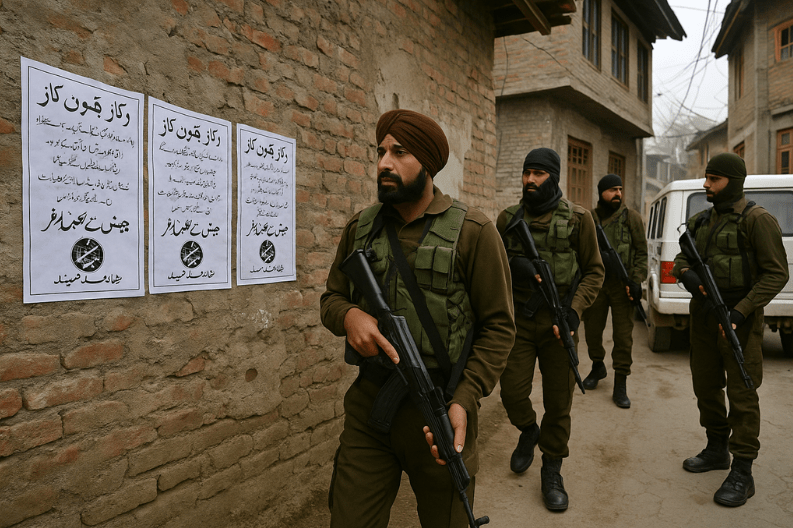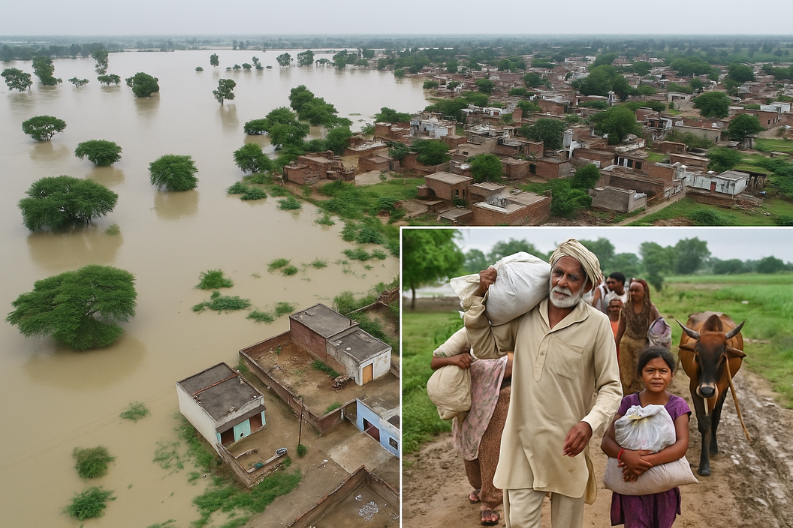The ongoing Terrorism investigation links posters found in Jammu and Kashmir to a recent blast in Delhi. Police began the inquiry last month after they discovered threatening posters from the Jaish-e-Mohammed (JeM) group in Bunpora, Nowgam, and Srinagar. These posters warned police and security forces, raising fears of renewed militant activity in the region.
The investigation officially started on October 19 when police teams noticed the posters during regular patrols. Since the abrogation of Article 370, such open threats have been rare, making this discovery alarming. Authorities believe the posters are tied to the terror module involved in the Red Fort Metro Station car blast in Delhi. Investigators say the group, nicknamed the “white-collar module” due to its organized structure, managed the explosive-laden car used in the attack.
So far, police have arrested seven suspects connected to the network and detained two others for questioning. Four more individuals are currently under investigation. According to reports, the car driver, Umar Un Nabi, escaped arrest when police captured other module members. His partner, Muzammil Ahmad Ganaie, was arrested earlier and identified as a key planner in the blast.
Investigators revealed that Umar fled after police detained Ganaie. Fearing exposure, he drove away with the car filled with explosives, likely attempting to hide or dispose of them before the explosion occurred. His escape remains one of the main challenges in the case.
While tracking the origins of the JeM posters, officers reviewed CCTV footage and identified three suspects with prior records in stone-pelting. Their questioning led police to a cleric named Maulvi Irfan Ahmad from Shopian. From Irfan’s information, police traced links spreading from Pulwama to Faridabad, Saharanpur, and Lucknow.
The arrests followed quickly. In Faridabad, officers caught Muzammil Ganaie, originally from Pulwama. In Saharanpur, they detained Adeel Ahmad Rather from Qazigund. And, in Lucknow, they arrested Shaheen Sayeed, believed to be Ganaie’s girlfriend. In addition, officers arrested another cleric, Ishtiyaq, in the Mewat region near Faridabad.
During searches, investigators discovered 358 kilograms of explosives in one location and another 2,563 kilograms packed in 88 bags elsewhere, marking one of the largest explosive seizures in recent years. They also recovered an AK-47 rifle belonging to Adeel, stored in a locker at the Government Medical College in Srinagar.
Irfan initially refused to cooperate, but police convinced him to talk after tracing his phone to a Telegram channel managed by a Pakistan-based Jaish terrorist, Umar bin Khattab. His assistant, Zameer Ahmad Ahanger, also called Mutlasha, revealed his own links to an extremist online group called Farzandan e Darul Uloom Deoband, which connects radical supporters across India.
The ongoing investigation exposes the dangerous reach of terror networks that blend local operatives with international handlers. Police say these groups use technology to recruit, train, and plan attacks, often under the radar.
Authorities have now tightened surveillance in Jammu and Kashmir, Delhi, and Haryana, increasing intelligence sharing between agencies. The focus is on dismantling these sleeper cells and ensuring no further attacks occur.
Senior officers praised the public’s cooperation and urged citizens to remain alert. “Terror networks survive on silence. Community awareness is our strongest defense,” said one official.
As the Terrorism investigation links posters case unfolds, it highlights how organized networks still threaten national security. Police continue working to uncover deeper connections and prevent future violence, stressing that public vigilance and unity remain vital to maintaining peace across India.



